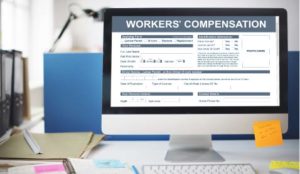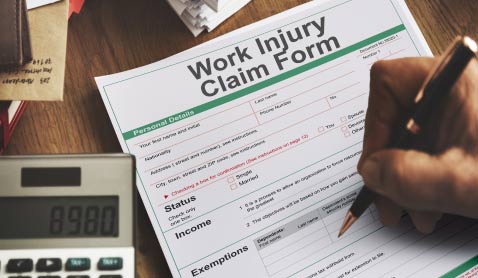Virginia Beach Workers’ Compensation Lawyer
Getting hurt at work can be a frightening experience. Not only can it leave someone disabled, but also it can result in mounting medical bills and the risk of losing a worker’s ability to perform their job as before. It can be a very daunting road ahead. Fortunately, there are laws in place that will protect employees if they are injured at work, regardless of the circumstances.
Workers’ Compensation provides injured employees compensation for the injuries they sustain at work. The problem is that not all supervisors or employers are eager to file a claim for Workers’ Compensation on behalf of their employees. There are multiple reasons for that reluctance. Some companies do not wish to take on the financial responsibility, and others do not want to deal with the stigma of a major accident taking place at their facility.
At a time when workers need an advocate who will represent their side of the story and fight to ensure that they receive the compensation for which they are entitled, the Virginia Beach Workers’ Compensation lawyers at Anchor Legal Group, PLLC are available to provide expert assistance.
What is Workers’ Compensation?

Workers’ Compensation insurance is a type of benefit that employers are required to keep that will pay their workers should they suffer an accident at work. The insurance generally covers their medicals bills as well as for the time that they miss at work. The Virginia Workers’ Compensation Act requires that all businesses in the Commonwealth that carry more than two employees carry insurance. There are other benefits for having the insurance from the company’s perspective. First, it protects companies that carry Workers’ Compensation insurance from litigation following an accident. It also protects their employees from financial hardship should they experience an accident.
Qualifying for Workers’ Compensation in Virginia
More than 97 percent of all employees in the Commonwealth of Virginia are covered under Workers’ Compensation insurance regardless of their employment status, length of time with the company, or even their immigration status. Even if the company hired someone illegally, that person is still eligible for Workers’ Compensation. All eligible employees become eligible the moment they start working at the company. There is a small percentage of individuals who are not eligible for Workers’ Compensation under Virginia law. Those not eligible for the insurance include the following people:
- Independent contractors. The Virginia Workers’ Compensation Act does not specifically cover independent contractors; however, the Court of Appeals of Virginia has opened the possibility of including them in a recent ruling.
- Elected officials. Those officers and employees of the Commonwealth of Virginia who are elected by the General Assembly or appointed by the governor are ineligible to file for Workers’ Compensation. In addition, elected officers and employees of municipal corporations and political subdivisions are also not eligible. However, employees of the government are eligible.
- Real estate salespeople and brokers. Licensed real estate salespeople and brokers are not eligible because they receive most if not all their compensation through commissions. That arrangement allows them to qualify as an independent contractor for federal tax purposes, meaning they are not a full-time employee and are therefore ineligible to receive Workers’ Compensation.
- Taxicab drivers. Not all cab drivers are ineligible, only the ones who are excluded from taxation under the Federal Unemployment Tax Act.
- Domestic servants. Those who work as maids and landscapers for a private home are not eligible for Workers’ Compensation. The reason is that a private home is not producing any goods or services, so it does not fall under the Workers’ Compensation Act.
- Farm and horticultural laborers. Those who work on a farm are not eligible, although there are some exceptions, such as those who work on a farm that has three or more full-time employees.
- Railroad workers. These workers are not covered under Virginia’s Workers’ Compensation Act because in most cases, they fall under the jurisdiction of the Federal Employers Liability Act (FELA).
- Volunteers. Because they are not employees, volunteers are not eligible for Workers’ Compensation, nor is the organization under any legal obligation to offer it. However, some organizations may choose to offer it to their volunteers.
- Volunteer firefighters/rescue squad members. These are traditionally volunteer positions; therefore, they are not eligible for the insurance. However, if the local government entity that supervises the company votes to offer Workers’ Compensation, they can become eligible that way.
- Federal employees. They are not covered under the commonwealth’s Workers’ Compensation insurance because they are eligible for the federal program under the Federal Employment Compensation Act (FECA), even if they work and live in Virginia.
- Maritime workers. People who work in the shipyards around the state fall under a different jurisdiction when it comes to Workers’ Compensation. They still receive assistance; it is just under the Longshore and Harbor Workers’ Compensation Act as opposed to Virginia’s version.
- Seamen. Workers who are injured while working on a boat can sue their employer under the Jones Act, which covers those who work on ships.
- Sports officials. Anyone working as an official for an entity sponsored by either an interscholastic or intercollegiate sporting event is not eligible. Specifically, those individuals include umpires, referees, judges, scorekeepers, timekeepers, and other neutral participants in the game.
What Conditions Must Be Present for Workers to Be Eligible?
In Virginia, an employee who sustains an injury at work is eligible to collect Workers’ Compensation benefits if the injury they sustained on the job was work related. If they suffered a stroke or tripped over their own feet while at work, it is not enough to claim the benefit. There needs to be a work connection. However, Workers’ Compensation is a no-fault system in that it does not matter who caused the accident. An employee could have caused their own accident, or the accident could have been the result of someone else’s carelessness, but the employee is still eligible to receive Workers’ Compensation.
What Benefits are Associated with Workers’ Compensation Insurance?

After someone is injured in a work-related accident, there are several financial obligations that begin to pile up. Fortunately, Workers’ Compensation is there to help support the injured worker financially and ensure that they do not experience a significant financial setback because of what happened. There are several things that the insurance will cover, including the following:
- Medical bills. After someone is injured at work, they will need to see a doctor and possibly seek out other medical treatments and procedures. Workers’ Compensation insurance will cover the costs of these treatments. Workers must be sure to keep all records from these experiences to verify the costs when filing a claim.
- Ongoing care. Some injuries require more long-term care, including ongoing procedures and physical therapy. These additional treatments have the potential to be extremely draining on a person’s finances. It again helps to keep a record of the receipts and statements from these procedures, including a note from the doctor explaining the reason for the treatments.
- Missed wages. While an injured employee is at home recuperating from their injuries or getting treatment, it is likely that they will not be able to return to work. Alternatively, they might be able to return to work, but at a reduced capacity, meaning they cannot work the same number of hours they did before. Assuming the employer is unable to find a new position for the injured employee, Workers’ Compensation will pay for those wages that were lost, based on the employee’s salary at the time of the accident. Keeping a copy of one’s recent pay stubs and W2 will help determine the amount the employee should receive from Workers’ Compensation. In Virginia, injured workers are not eligible to receive lost benefits for the first seven days, but they will receive payment for those seven days if their time out of work extends beyond 21 days. In terms of calculating the amount a worker will receive, they will get two-thirds of their average weekly wage for up to 500 weeks.
- Disability. Some work-related injuries leave the victim permanently disabled. Workers’ Compensation will help pay for those ongoing medical expenses, along with lost wages. In addition, if an injury leaves a person unable to return to work, they will still need to pay for their medical benefits, which Workers’ Compensation will cover.
- Illness. In some instances, it is not an obvious injury that causes a medical problem for an employee, but something such as a chemical leak or exposure to other harmful material. Employees are still eligible to receive compensation for their medical expenses if they get sick because of a situation at work.
- Repetitive injuries. Another injury that need not have been caused by a traumatic event involves an injury that occurs because of repetitive movement. These might be more related to those working in an office and performing the same function repeatedly, causing injuries such as Carpal Tunnel Syndrome.
- Funeral costs. Unfortunately, some injuries at work are so severe that it results in the death of the employee. The family of the deceased worker can take advantage of Workers’ Compensation, which will help pay for the funeral and provide death benefits for the surviving family members.
What Steps Should I Take After a Work Accident Occurs?
In the immediate aftermath of an accident, it can be a confusing and disorienting time. Although it might be difficult for the injured worker to think straight, it is those moments immediately afterward that can make all the difference in putting together a solid claim to present to the employer and the Commonwealth. The injured worker should do the following:
- Seek medical help. This is the most essential aspect of the entire process. The worker should immediately see a doctor for an examination. In many cases, the employer will have a list of doctors covered under their Workers’ Compensation insurance; therefore, the worker should see one of the doctors recommended. Even if the injury is not severe enough to warrant an immediate trip to the doctor, the worker should still schedule an appointment to meet with a doctor promptly.
- Report the accident. If the worker is able to do so, they should report the accident as soon as it takes place. The worker should provide information about the accident and the circumstances. However, the worker must not try to take on too much responsibility or absolve the company of its responsibility. The wrong word or phrase could be used against the employee later. If the injuries require immediate medical attention, the employee, when they are first able to do so, should return to work and report the incident. Workers have 30 days to report the accident. Failure to do so could jeopardize the chances of receiving any benefits.
- Keep all records. After the worker visits the doctor, they must keep a copy of all the records and bills accumulated because of the initial visit. For subsequent appointments, it is important for the worker to keep all receipts and records for any procedures and treatments they undergo because of their injuries.
- Gather evidence. Materials related to the accident should be collected, including photos of the site of the accident, as well as a copy of the employee’s timesheet demonstrating that they were working at the time of the accident.
- Talk to witnesses. The employee should talk to coworkers and others who were at the scene of the accident. They can speak to the circumstances that were taking place just prior to the accident. They can comment on what the injured worker was doing or the condition of the equipment he or she was using when the accident occurred.
These are important and necessary steps to take to establish a strong case for a Workers’ Compensation claim. If the injured employee is unable to perform some of these steps because of their injuries, it makes sense to have a trusted coworker do it for them.
How can I File a Workers’ Compensation Claim?

Even if the employee reported the accident to their employer and is receiving Workers’ Compensation benefits, they must still report the accident to the Virginia Workers’ Compensation Commission within two years of the accident. There are four methods by which injured workers can file the Claim for Benefits form:
- In person. The worker can fill out the form and deliver it in person to any one of the Commission’s offices. A photo ID might be required when the form is submitted.
- By mail. The form can be mailed to the Virginia Workers’ Compensation Commission.
- Fax. The form can be faxed.
- Webfile. The worker can use their Jurisdiction Claim Number (JCN), which they will receive if their employer files a claim, to create an account with the Commission and file the form online.
Returning to Work
A doctor will determine when an employee is able to return to work. The doctor can release the employee to return to work full time, with restrictions or on light duty. Once the doctor makes that determination, the employee will receive a Termination of Wage Loss Award. It will state the date the employee should return to work.
If the doctor has approved either light-duty work or work with restrictions, the worker is obligated to accept whatever job their employer offers, even if it is at a lesser pay than what they received prior to the accident. However, the employer is obligated to pay the employee the difference, so their salary does not drop.
If the employer does not provide the employee with a position, the employee will be required to look for a new job. During that job search, the worker must sign up with the Job Placement Division of the Virginia Employment Commission. Workers must also keep a weekly record of their job search and apply for at least five positions per week.
What Options are Available if Someone Else Caused My Injury?
If an employee is injured because of the actions of someone who does not work for the same company, the employee can sue that person, claiming third-party liability. This situation can also apply to the manufacturer of a machine or power tool the employee was using at work that caused the accident. Under these cases, the worker and their lawyer will have to prove that the actions of this third party or their lack of action led directly to the injury. If the lawsuit is successful, the liable party’s insurance will have to pay for the worker’s expenses.
These legal proceedings can lead to different results. First, the opposing lawyer might attempt to settle the case. However, if the amount the victim is requesting is high enough, the defendant’s lawyer may seek to have the matter taken to court and heard before a judge or jury.



